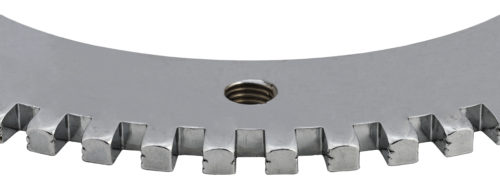Computer numerical control (CNC) machining relies on pre-programmed computer software to guide machinery and tools rather than a technician. The process allows manufacturers to create precise and highly replicable parts in less time than traditional machining.
At Principal Manufacturing Corporation, we offer a range of CNC machining services, including turning and milling. Our team delivers engineering and manufacturing solutions for global clients in the industrial, automotive, and OEM sectors. Enabling precision features, our CNC machining capabilities rely on numerous types of equipment and tools to provide components for a broad spectrum of applications.
CNC Machining Capabilities
CNC machining provides higher precision, accuracy, and repeatability than traditional machining. It relies on computer-aided manufacturing (CAM) methods such as computer-aided design (CAD) software to produce a component following coded instructions. It can save time and money over standard machining and allows manufacturers to automate most operations for consistent dimensions and quality while requiring little or no secondary procedures.
CNC machining utilizes a range of equipment to carry out various processes. Manufacturers employ the following types of CNC machinery:
- CNC mills. These machines hold a workpiece stationary while a rotating cutting tool removes material. This equipment can produce shallow or deep cavities, flat surfaces, and threaded holes.
- Lathes. Lathes rotate a workpiece while stationary cutting tools remove material in a linear motion. They can machine internal and external features to create shafts, bolts, screws, and poppets.
- Electrical discharge machining (EDM) equipment. EDM machines rely on electric sparks between electrodes to create intense heat for cutting materials while a liquid dielectric flushes the melted material away. EDM is ideal for creating precise and complex features, including slots, holes, angles, and tapers.
- Plasma cutters. These cutters use powerful plasma torches consisting of electrically ionized gas to melt through and cut a conductive material. These can include copper, steel, aluminum, stainless steel, and brass.
- Waterjet cutters. Water jet machines use high-pressure waterjets, sometimes combined with abrasives like sand, for cutting exceptionally hard materials. It is ideal for applications that cannot handle heat-based cutting, which may otherwise alter the intrinsic characteristics of a material or part.
CNC Machining Services From Principal Manufacturing Corporation
Various industries depend on CNC machining to deliver high-quality parts. At Principal Manufacturing Corporation, we specialize in fineblanking, plastic injection molding, and conventional stamping. From our ISO 14001:2015- and IATF 16949:2016-certified facility, the base of our operations since 1996, we provide numerous secondary services, including precision CNC machining. With a high level of flexibility in our manufacturing processes, we strive to make our company your one-stop shop. Our in-house capabilities allow our engineering and manufacturing teams to maintain full oversight throughout operations, proudly serving industry leaders like Bocar, Magna, Rivian, and BorgWarner.
The team at Principal Manufacturing is committed to finding the most cost-effective and efficient methods for supplying your turnkey parts. Contact us today to discuss your project requirements or to request a quote.


